If it’s time to upgrade your furnace, you may hear suggestions to switch from oil to propane. Take this decision very seriously, as it could be very expensive in the long run. In this post, we’ll break down the real reasons why companies encourage you to make the switch.
Delivered Fuels
Propane and heating oil are both considered ‘delivered fuels‘. Whereas natural gas and electricity come automatically, oil and propane come via truck.
This is important to consider, because you need to maintain a constant supply of either fuel during the cold months. Whereas natural gas and electricity keep coming, oil and propane can run out if you’re not careful.
There are two ways to order oil and propane: on a ‘will-call’ basis or via ‘automatic delivery’. Will-call tends to be more cost-effective, but be careful not to forget to order! If you run out, you could have a very cold house while waiting for the truck to arrive. Automatic delivery comes at a premium (usually 50 cents or more per gallon), but some argue that the peace of mind is worth it.
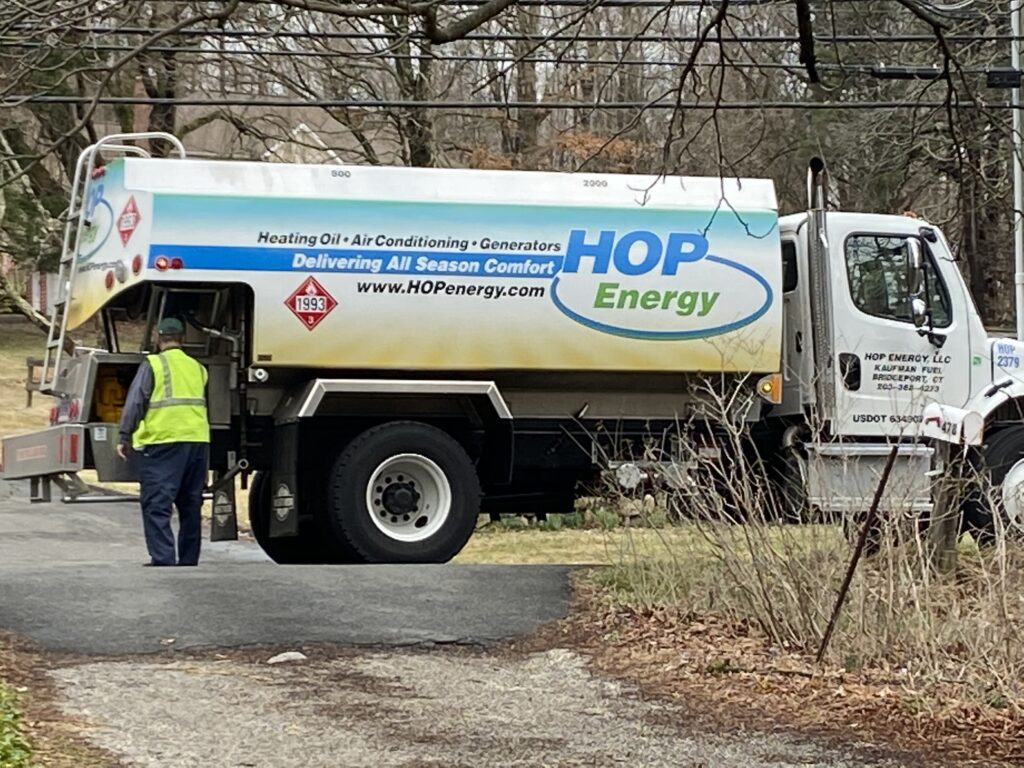
Propane and Heating Oil Storage Tanks
Pipelines carry natural gas through streets and to homes. Fuel companies, on the other hand, deliver oil and propane to homes. Tanks are used to store the fuel for months at a time.
There are three types of oil tanks: indoor above ground, outdoor above ground, and underground.
- Indoor above ground: This is the most desirable type of oil tank. It does not see snow or rain, and is out of sight.
- Outdoor above ground: This is the second most desirable type of oil tank. You can easily access and inspect an outdoor oil tank. That said, rain and snow will shorten the lives of these tanks.
- Underground: These are the least desirable tanks. There is typically no way to gauge how much oil is in an underground tank, other than sticking a long dip stick in the tank. Further, there is no way to know if the tank is beginning to leak. A leaking underground tank can be very costly.
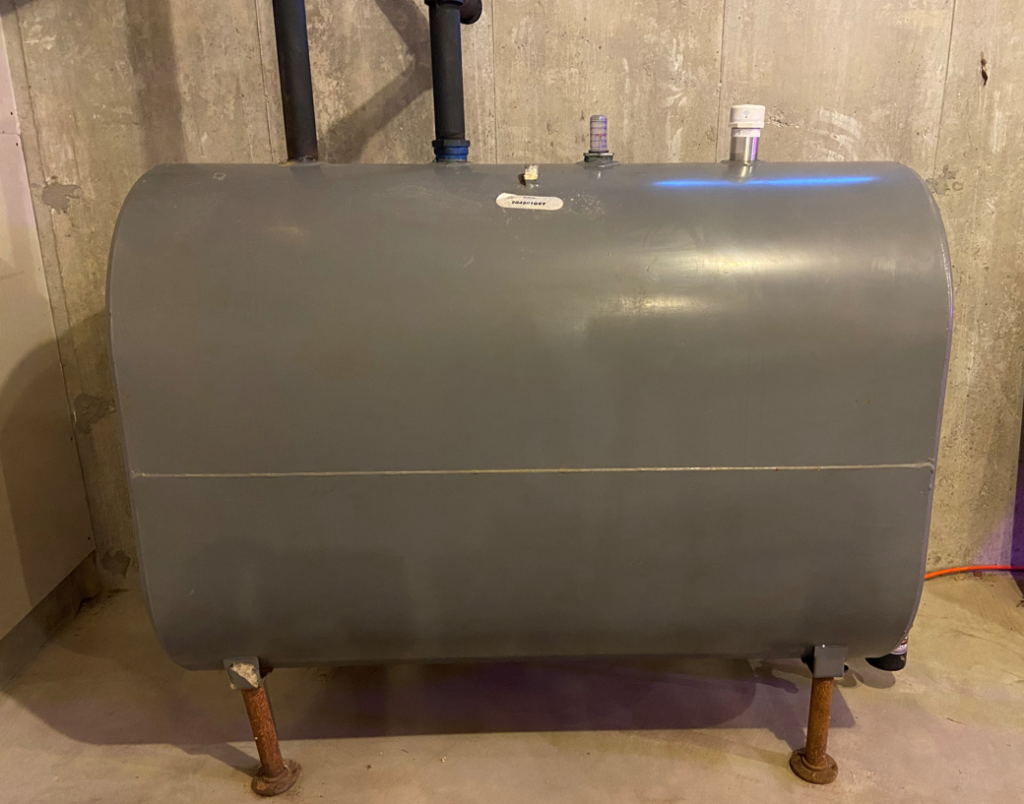
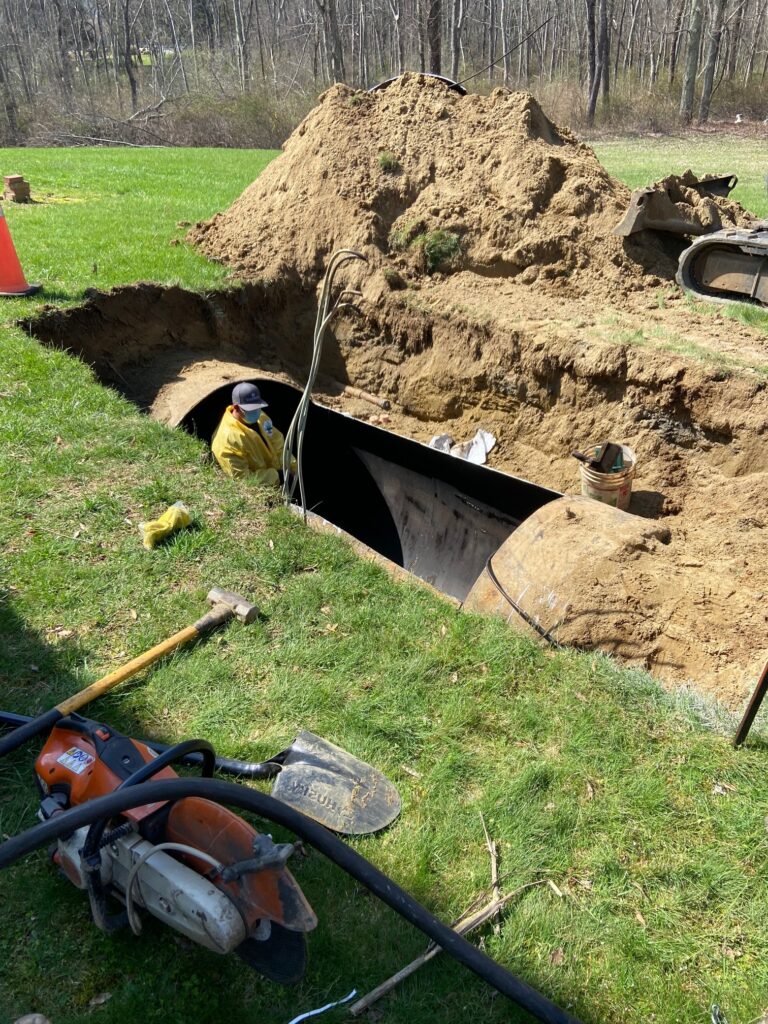
Propane tanks, on the other hand, are available in only two styles: outdoor above-ground, and outdoor underground.
- Outdoor above-ground: Propane tanks are most commonly above ground. They must be located away from the residence in case of a leak. As a result, they are often clearly visible in the yard and are rather unsightly.
- Underground: Underground propane tanks are rare, but preferred.
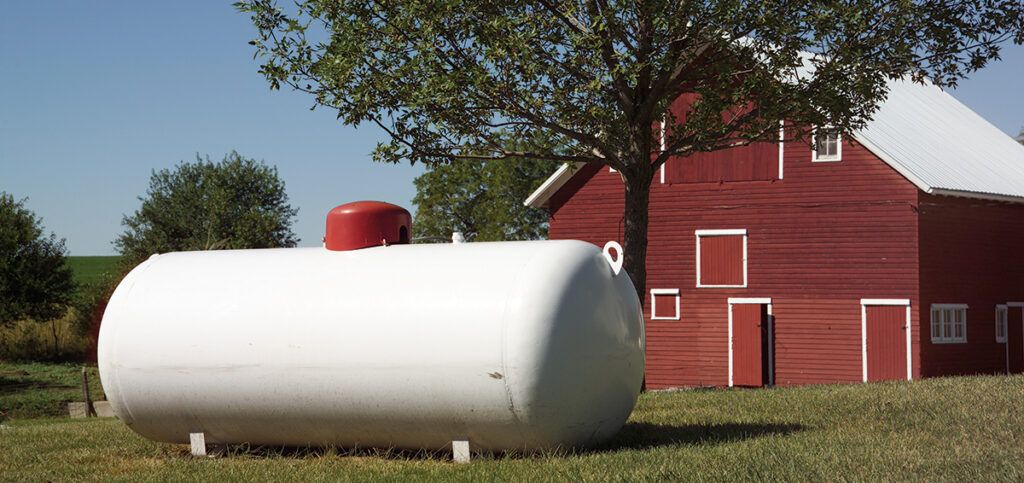
Benefits of Propane
Propane is a very versatile fuel. Propane fuels fire places, stoves, water heaters, furnaces, and more. You will also find that propane prices are quite stable.
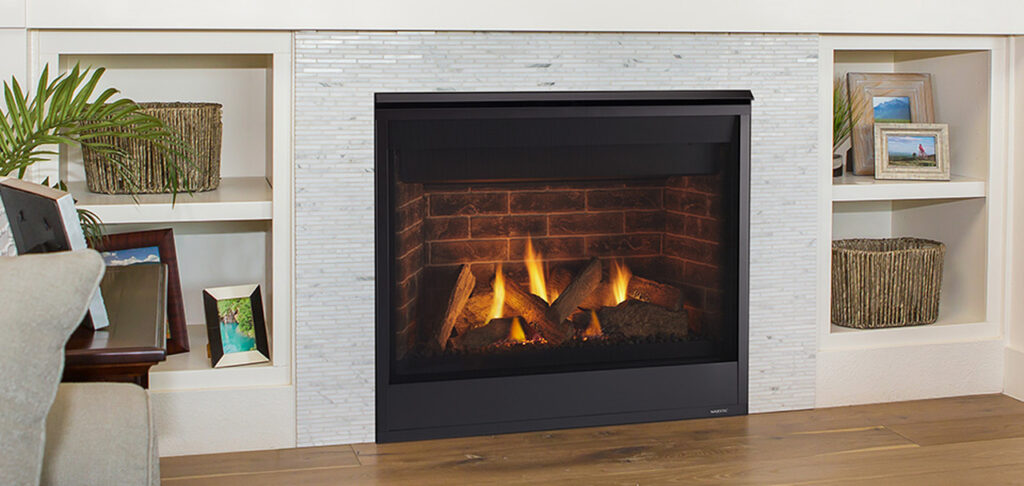
Downsides of Propane
The biggest downside of propane is the lack of flexibility. In the vast majority of cases, the propane company provides the tank at your home. This means that you cannot choose a different supplier to fill that tank. When a pushy salesman is trying to get you to convert to propane, this is why.
It is extremely profitable for the propane provider to get you to switch from oil to propane. The only way to switch propane providers is to buy your tank (which costs thousands of dollars), or have a new company come and install tanks of their own.
Another downside of propane is that you cannot top off the tank yourself if you run out. You must simply wait for the delivery truck to come if you run out of propane.
Benefits of Heating Oil
Heating oil burns HOT. As a result, you get significantly more heat from a gallon of heating oil than an equivalent gallon of propane.
A gallon of propane produces 91,500 BTUs. Since most equipment is about 95% efficient, a gallon of propane produces 86,925 effective BTUs.
A gallon of heating oil produces 138,500 BTUs. Since most equipment is about 85% efficient, a gallon of oil produces 117,725 effective BTUs.
The result is that you need 1.35 gallons of propane to produce the same heat as 1 gallon of heating oil.
In addition, as a homeowner, you ALWAYS own your heating oil tank. This means you are free to order oil from any dealer at any time.
Prices for heating oil, therefore, are much more competitive than propane. You can use sites like FuelSnap to compare prices and order heating oil online.
You can also introduce technology like the Smart Oil Gauge to easily monitor your oil tank. Get low-level alerts and order heating oil right through the app.
You can also add diesel to your tank if you run out of oil. Follow these steps here if you find yourself out of heating oil.
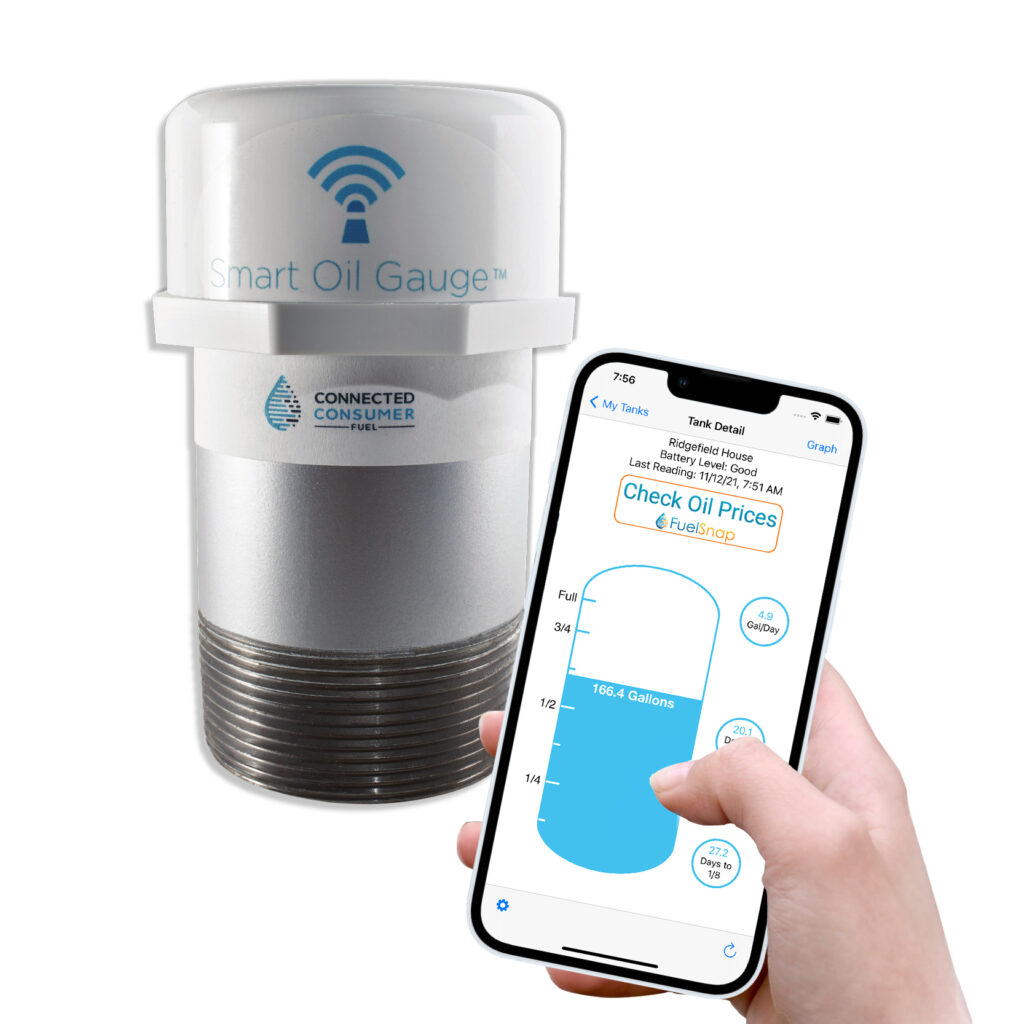
Downsides of Heating Oil
Heating oil is smelly. If your tank leaks, you could have an environmental hazard on your hands. While rare, it certainly does happen. That said, inspecting your above-ground tank every year and removing underground tanks can help mitigate this risk.
Heating oil is also more prone to global oil price changes. When Ukraine was invaded in 2022, oil prices soared worldwide, whereas propane prices were less affected. When COVID-19 happened, however, heating oil prices were down to less than $1 per gallon. The same was not true for propane.
Be Wary of Salesman Encouraging You To Switch to Propane
Propane is great for many things including cooking, generators, and fireplaces. But it tends to be more expensive that heating oil over the long run when used for heating.
If a salesman simply says you’ll save money by switching to propane, make sure you push back. By switching over to propane you will relinquish a lot of control over your fuel.
The best case scenario is to have both fuels: heating oil for heat and propane for ancillary needs. Run your stove, fireplace and generator on propane. Use heating oil for heat and you should be the best off.
Happy heating,
Steve



